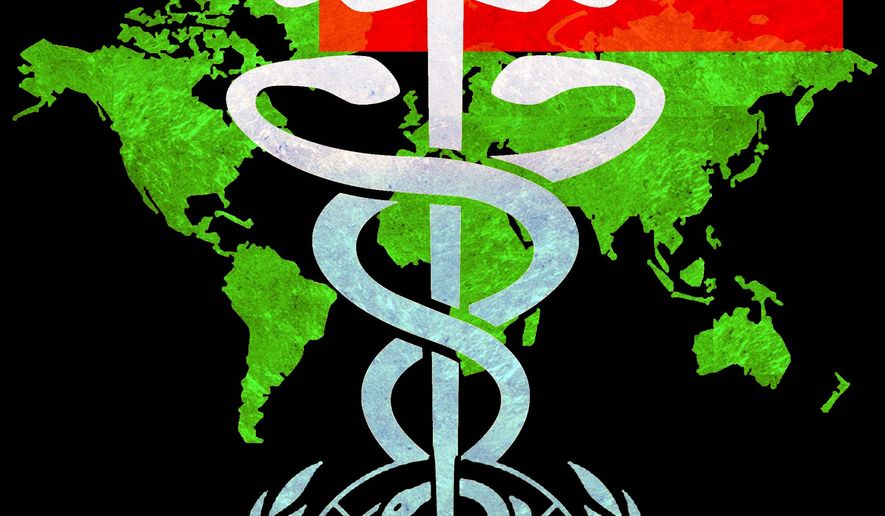OPINION:
The constitution of the World Health Organization (WHO) notes that “the enjoyment of the highest attainable standard of health is one of the fundamental rights of every human being without distinction of race, religion, political belief, economic or social condition.” Yet WHO withheld, as last year, an invitation for Taiwan’s participation in May as an observer in the annual World Health Assembly (WHA) in Geneva, Switzerland.
Beginning in 2009, for eight straight years, Taiwan had not only been invited as an observer in the WHA but has also participated in the WHA and the WHO technical meetings, mechanisms, and activities.
Taiwan is also at the forefront as a responsible stakeholder in making concrete contributions to enhance regional and global disease prevention networks. For instance, Taiwan worked closely with the U.S. Centers for Disease Control and Prevention and West African governments during the 2014 Ebola outbreaks, including a $1 million cash donation.
Thus, in the era of new cross-regional pandemics, Taiwan has successfully transformed its role on the international stage from aid recipient to assistance provider. It has established a comprehensive disease prevention system and organized numerous training workshops aimed at building capacity to prevent the spread of various contagious diseases, thereby facilitating collective efforts to strengthen global health security.
Taiwan was among the first eight governments to employ the WHO’s International Health Regulations (IHR) in 2005, setting a positive example for the entire Asia-Pacific region. It was also the first in Asia to implement a national health insurance program, which boasts a coverage rate of 99.9 percent of its 23 million citizens.
Medical expenditures in Taiwan account for a mere 6.3 percent of GDP. Taiwan is ready and willing to share its national health insurance success story with other members of the international community who are struggling with this challenging issue.
This year also marks the 15th anniversary of the 2003 outbreak of Severe Acute Respiratory Syndrome (SARS), which hit East Asia hard and left a death toll of 37 in Taiwan, 299 in Hong Kong and 349 in China, according to the WHO statistics.
The arbitrary limits placed on Taiwan’s ability to interact with international organizations in response to the SARS crisis exposed the folly of isolating Taiwan from the international health-care network at a time when a fatal disease was on the loose with no limit to national boundaries.
The roadblocks that the WHO threw up on information-sharing with Taiwan during the SARS outbreak caused the U.S. to come to Taiwan’s defense.
The House Foreign Affairs Committee crafted legislation (Public Law 108235) in 2004, authorizing the secretary of State “to initiate a U.S. plan to endorse and obtain observer status for Taiwan at the annual week-long summit of the World Health Assembly each year in Geneva, Switzerland.”
Once again this year, the House of Representatives passed H.R.3320 on January 10, directing the Secretary of State to develop a strategy for Taiwan to regain observer status in the WHO. Taiwan is grateful for the strong support demonstrated by the U.S. government.
In addition to the U.S., diplomatic allies and other like-minded nations such as Australia, Germany and Japan spoke up for Taiwan during the 2017 WHA. At the WHO Executive Board this January, friendly countries once again emphasized the importance of Taiwan’s participation in the WHA from the perspective of international public health expertise and global disease prevention.
Petty political rivalry and grandstanding should not be allowed to get in the way of the health of over 23 million men, women and children of Taiwan nor of that of the global population.
Taiwan needs to be seated at the upcoming 71st WHA in Geneva, Switzerland, in order to contribute its expertise and experience to the achievement of the WHO’s vision of a seamless global disease prevention network and to promote the wellbeing of all human beings at all ages. For what it has done and committed to give, Taiwan deserves a place at the table.
• Stanley Kao is the representative at the Taipei Economic and Cultural Representative Office in the United States.




Please read our comment policy before commenting.